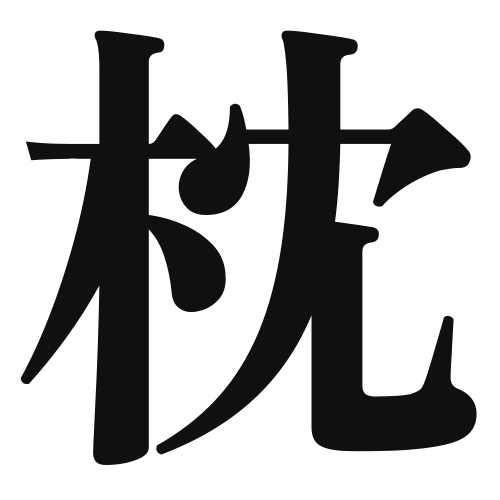1. Overview of Meaning
The kanji “枕” (makura) means “pillow.” It refers to a cushion used to support the head while sleeping, providing comfort and aiding in restful sleep.
2. Formation and Radicals
Formation of the Kanji: The kanji “枕” is a compound character (会意文字) that combines the elements for “tree” (木) and “to support” (𠂇). This reflects the idea of a soft support made from materials derived from trees.
Radical: The radical for “枕” is “木” (tree), which is often associated with wooden objects or items made from wood.
3. Examples of Usage
Common Words and Phrases:
- 枕元 (makuramoto) – bedside, the area next to the pillow
- 枕カバー (makurakaba) – pillow cover
Example Sentences in Daily Conversation:
- 「枕が柔らかいので、よく眠れました。」(The pillow was soft, so I slept well.)
- 「新しい枕を買いたいです。」(I want to buy a new pillow.)
4. Synonyms and Antonyms
Similar Kanji:
- クッション (kusshon) – cushion; while both provide support, “クッション” is often used for seating or decorative purposes, whereas “枕” specifically refers to a pillow for sleeping.
Antonyms:
- 床 (yuka) – floor; while “枕” is associated with comfort and rest, “床” refers to the hard surface where one might sleep without a pillow.
5. Cultural and Historical Background
Relation to Japanese Culture: In Japan, pillows have cultural significance, often being made from natural materials like buckwheat husks. Traditional Japanese pillows, known as “washi makura,” are designed to support the neck and head in a way that aligns with the body’s natural posture.
Proverbs and Idioms: One common saying is “枕を高くして寝る” (makura o takaku shite neru), which means “to sleep with a high pillow,” symbolizing a peaceful and comfortable sleep, often used to express contentment or satisfaction in life.
